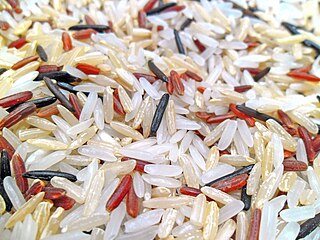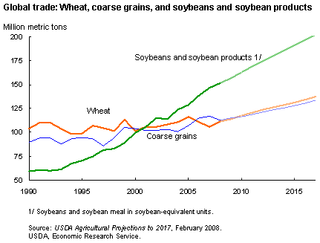
Laos, officially the Lao People's Democratic Republic, is a socialist state and the only landlocked country in Southeast Asia. At the heart of the Indochinese Peninsula, Laos is bordered by Myanmar and China to the northwest, Vietnam to the east, Cambodia to the southeast and Thailand to the west and southwest.

The United Nations (UN) is an intergovernmental organization that aims to maintain international peace and security, develop friendly relations among nations, achieve international cooperation, and be a centre for harmonizing the actions of nations. It is the largest, most familiar, most internationally represented and most powerful intergovernmental organization in the world. The UN is headquartered on international territory in New York City, with its other main offices in Geneva, Nairobi, Vienna, and The Hague.

The United Nations General Assembly is one of the six principal organs of the United Nations (UN), serving as the main deliberative, policy-making, and representative organ of the UN. Its powers, composition, functions, and procedures are set out in Chapter IV of the United Nations Charter. The UNGA is responsible for the UN budget, appointing the non-permanent members to the Security Council, appointing the Secretary-General of the United Nations, receiving reports from other parts of the UN system, and making recommendations through resolutions. It also establishes numerous subsidiary organs to advance or assist in its broad mandate. The UNGA is the only UN organ wherein all member states have equal representation.

Rice is the seed of the grass species Oryza sativa or less commonly Oryza glaberrima. The name wild rice is usually used for species of the genera Zizania and Porteresia, both wild and domesticated, although the term may also be used for primitive or uncultivated varieties of Oryza.

The economy of Madagascar is a market economy and is supported by Madagascar's well-established agricultural industry and emerging tourism, textile and mining industries. Malagasy agriculture produces tropical staple crops such as rice and cassava, as well as cash crops such as vanilla and coffee. Madagascar's wealth of natural resources supports its sizable mining industry. Additionally, Madagascar's status as a developing nation exempts Malagasy exports from customs protocol in some areas, notably the United States and European Union. These exemptions have supported the growth of the Malagasy textile industry. Despite Madagascar's natural resources and developing industries, the 2009 Malagasy political crisis—considered by the international community to be an illegal coup—deterred foreign investments in Madagascar and caused the Malagasy economy to decline. Foreign investments have resumed following the resumption of elections in early 2014. At 2018, Madagascar is one of the world's fastest-growing economies.
The politics of Afghanistan consists of the cabinet of ministers, provincial governors and the national assembly, with a president serving as the head of state, head of government and commander-in-chief of the Afghan Armed Forces. The nation is currently led by President Ashraf Ghani who is backed by two vice presidents, Amrullah Saleh and Sarwar Danish. In the last decade the politics of Afghanistan have been influenced by NATO countries, particularly the United States, in an effort to stabilise and democratise the country. In 2004, the nation's new constitution was adopted and an executive president was elected. The following year a general election to choose parliamentarians took place.

Gunsan, also romanized as Kunsan, is a city in North Jeolla Province, South Korea. It is on the south bank of the Geum River just upstream from its exit into the Yellow Sea. It has emerged as a high-tech manufacturing industrial city and an international trade seaport that is approximately 200 km (120 mi) southwest of Seoul on the midwest coast of the Korean Peninsula.

The United Nations General Assembly declared 2004 as the International Year to Commemorate the Struggle against Slavery and its Abolition.

New Rice for Africa ("NERICA") is a cultivar group of interspecific hybrid rice developed by the Africa Rice Center (AfricaRice) to improve the yield of African rice cultivars. Although 240 million people in West Africa rely on rice as the primary source of food energy and protein in their diet, the majority of this rice is imported. Self-sufficiency in rice production would improve food security and aid economic development in West Africa.

The United Nations Permanent Forum on Indigenous Issues is the UN's central coordinating body for matters relating to the concerns and rights of the world's indigenous peoples. "Indigenous person" means native, original, first people and aboriginal. There are more than 370 million indigenous people in some 70 countries worldwide. The forum is an advisory body within the framework of the United Nations System that reports to the UN's Economic and Social Council (ECOSOC). The first indigenous to be elected to office at a United Nations meeting was Chief Ted Moses of the Grand Council of the Crees in Canada, in 1989.
The year 2008 was declared the International Year of the Potato by the United Nations, noting that the potato is a staple food in the diet of the world's population, and affirming the need to focus world attention on the role that the potato can play in providing food security and eradicating poverty. Food and Agriculture Organization was invited to facilitate its implementation.
The history of Agriculture in India dates back to Indus Valley Civilization. India ranks second worldwide in farm outputs. As per 2018, agriculture employed more than 50% of the Indian work force and contributed 17–18% to country's GDP.

The 162nd Fighter Wing is a unit of the Arizona Air National Guard, stationed at Tucson Air National Guard Base, Arizona. If activated to federal service, the wing is gained by the United States Air Force Air Education and Training Command.

World food prices increased dramatically in 2007 and the first and second quarter of 2008, creating a global crisis and causing political and economic instability and social unrest in both poor and developed nations. Although the media spotlight focused on the riots that ensued in the face of high prices, the ongoing crisis of food insecurity had been years in the making. Systemic causes for the worldwide increases in food prices continue to be the subject of debate. After peaking in the second quarter of 2008, prices fell dramatically during the late-2000s recession but increased during late 2009 and 2010, reaching new heights in 2011 and 2012 at a level slightly higher than the level reached in 2008. Over the next years, prices fell, reaching a low in March 2016 with the deflated Food and Agriculture Organization (FAO) food price index close to pre-crisis level of 2006. As of May 2017 they have not reached crisis levels again, despite prices increasing.

UN Security Council Resolution 1835 was adopted unanimously by United Nations Security Council on 27 September 2008. The resolution was in response to 15 September report of the International Atomic Energy Agency (IAEA) that stated that Iran had not suspended uranium-enrichment-related activities. The resolution reaffirmed four previous Security Council resolutions: 1696 (2006), 1737 (2006), 1747 (2007), and 1803 (2008).

United Nations Security Council resolution 1557, adopted unanimously on 12 August 2004, after reaffirming previous resolutions on Iraq, particularly resolutions 1500 (2003) and 1546 (2004), the Council extended the mandate of the United Nations Assistance Mission in Iraq (UNAMI) for a further period of twelve months. The resolution was drafted by the United Kingdom and United States.

"We choose to go to the Moon", officially titled as the Address at Rice University on the Nation's Space Effort, is a speech delivered by United States President John F. Kennedy about the effort to reach the Moon to a large crowd gathered at Rice Stadium in Houston, Texas, on September 12, 1962. The speech, largely written by Kennedy advisor and speechwriter Ted Sorensen, was intended to persuade the American people to support the Apollo program, the national effort to land a man on the Moon.

Declan Rice is an English professional footballer who plays as a defensive midfielder or centre-back for Premier League club West Ham United and the England national team.

Typhoon Agnes, known in the Philippines as Typhoon Undang, was the final tropical cyclone to affect the Philippines during the 1984 Pacific typhoon season. An area of disturbed weather developed near the equator and the Caroline Islands on October 28. Following an increase in organization, the cyclone was designated a tropical storm on October 31. After tracking northwest initially, Agnes turned west-northwest the next day, a course that the system would maintain for the rest of its lifetime. Agnes intensified into a typhoon on November 2, and on November 4, attained peak intensity. The storm then made landfall on Samar Island, part of the Philippines, at that intensity. The storm weakened over land, but re-intensified over the South China Sea; Agnes obtained a secondary peak intensity on November 6. The next day, Typhoon Agnes moved ashore Vietnam while still at typhoon intensity. The storm rapidly deteriorated over land and dissipated by November 8 over Thailand.

















